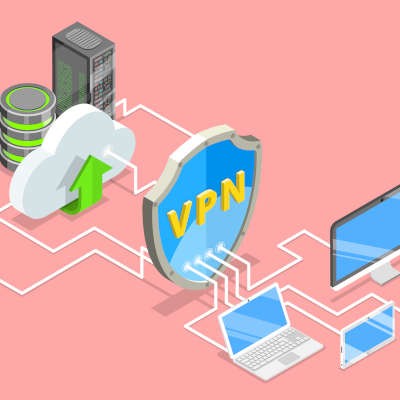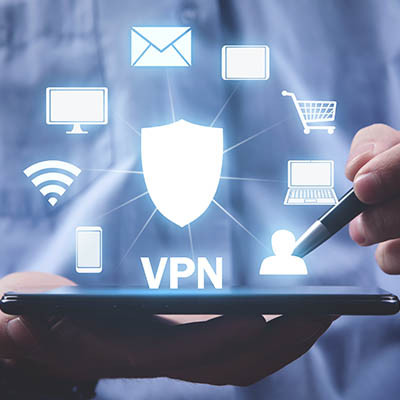
We are living in an era where remote and hybrid work is becoming more common and increasingly desired among knowledge workers. With users now accountable for their online privacy, more and more businesses are turning to Virtual Private Networks (VPN) to prevent breaches.
As cyber threats grow more sophisticated, a reliable VPN is essential. With countless options available, how do you choose the right one to keep your business safe? Here are some key factors to consider when selecting a VPN for business use.
#1: Public vs. Private VPNs for Businesses
When you’re getting started with VPNs for business use, it’s important to make sure you’re searching for private VPNs as opposed to public VPNs. While they might be suitable for casual browsing, public VPNs (e.g., NordVPN, Surfshark, etc.) don’t provide the level of security businesses need to protect vital data.
A public VPN provides access to an “anonymous” network for browsing and is relatively easy to set up. However, because they cater to a broad audience, customization options and protection standards are limited. On the other hand, private VPNs (those created by your IT team for direct connection to your IT environment) are customized to resolve your business’s unique cybersecurity concerns and only allow access to users that you have authorized. When sending and receiving data within your organization, this private VPN ensures that all information is completely secure.
#2: Reliable & Trustworthy Reputation
When choosing the best VPN provider to set up your private VPN, look for providers who are accredited as trustworthy and reliable. One way to ensure credibility is if a provider has the VPN Trust Seal accredited from the VPN Trust Initiative. This ensures that the provider adheres to high standards of privacy and security.
Additionally, browse through online reviews to make sure previous users have not had any issues with their data's security and privacy while working with this provider.
#3: Zero-Logging Policy
One of the most crucial features of a VPN is its logging policy. Wherever you use your internet, your network provider logs and tracks your activity. A private VPN with a zero-logging policy prevents both your internet provider and VPN provider from storing any data about your online activities.
For businesses, a zero-logging policy ensures that sensitive data remains confidential and protected from unauthorized access. Additionally, in the unfortunate event that your VPN provider is compromised, your data remains secure and private, as there are no logs to exploit.
Note: We are NOT saying you should never log your users’ Internet access. You might be in an industry that requires such logging. We just are saying that you should not let your VPN provider control those logs. That should be something that your IT team sets up and manages.
#4: Jurisdiction and Privacy Laws
Some countries have different data retention laws that could compromise your data's security. For instance, if the VPN provider is in a country that is required to share data with intelligence agencies, then you won’t be getting the privacy and security that you could be.
Providers that operate within the USA must follow The American Privacy Rights Act of 2024 and data protection regulations continue to vary by state. By opting for a local provider that operates within your country or US state, you can ensure that security protocols will protect sensitive data and align with your government’s regulations and requirements. Additionally, a local provider may offer better support and understanding of the unique challenges faced by businesses in your specific region.
#5: Encryption Standards
The higher your VPN’s encryption standard, the better it will be at protecting your data. Your private VPN provider should offer both Secure Shell (SSH) and Secure Sockets Layer (SSL) encryption options to ensure that your data is protected as securely as possible.
SSL encryption ensures secure access to information and files, while SSH encryption provides a secure tunnel for sending information between employees using the VPN. Both SSL and SSH are essential for data security, and when used together, they provide enhanced protection due to their strong encryption standards.
If you’re searching for the best VPN for your business, our expert team at EpiOn is here to help. Get an in depth risk analysis for your business’s IT environment using our IT Pro Assessment. We’ll assess your current data security setup, identify areas for improvement and help you choose a VPN that protects and strengthens your business.



